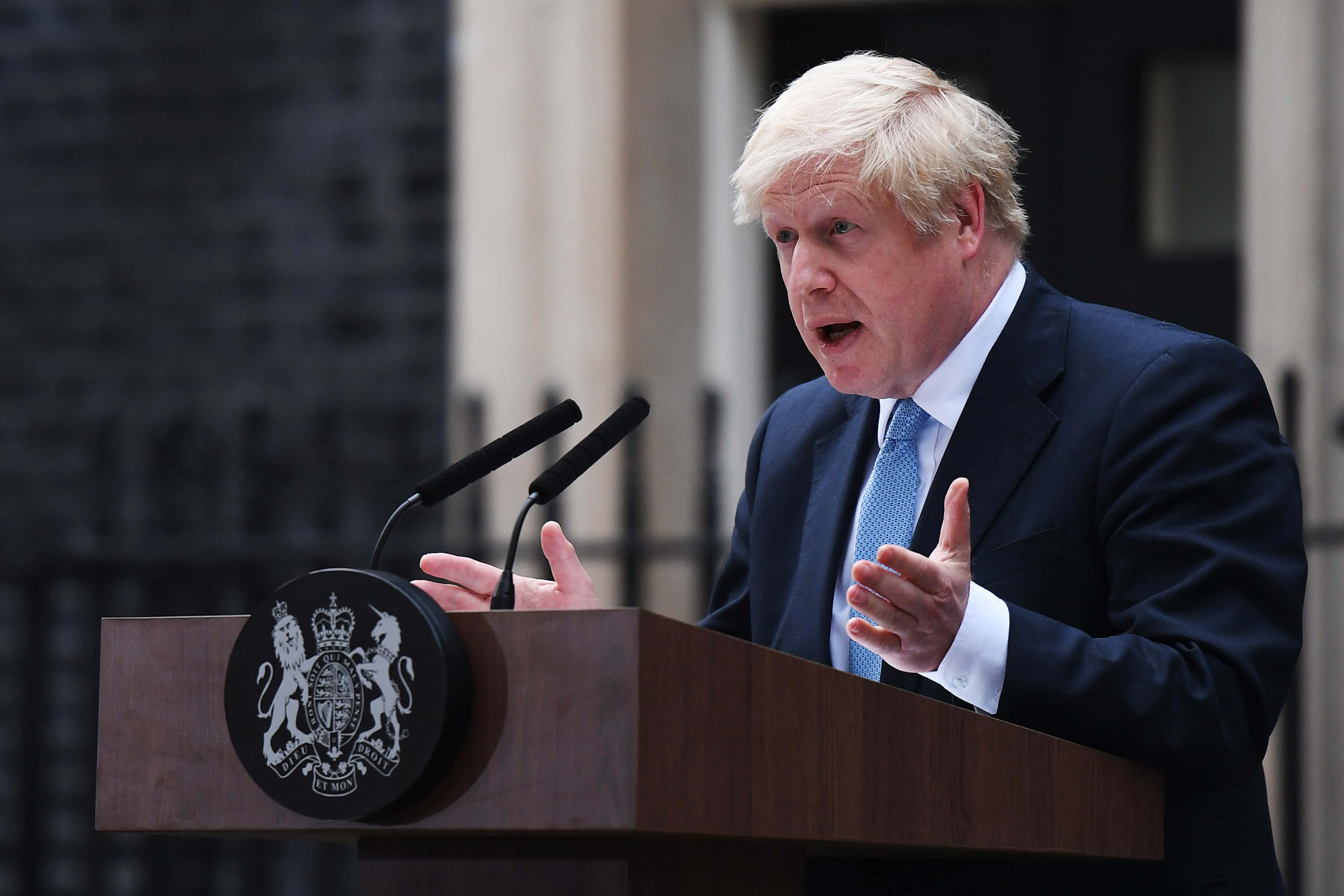The daily business briefing: September 3, 2019
Boris Johnson makes veiled threat of snap elections to prevent Brexit delay, stock futures fall after latest U.S.-China tariffs, and more


A free daily email with the biggest news stories of the day – and the best features from TheWeek.com
You are now subscribed
Your newsletter sign-up was successful
1. Boris Johnson hints at snap elections to prevent Brexit delay
British Prime Minister Boris Johnson warned rebel members of Parliament on Monday night that he could call a snap election as soon as Wednesday to head off a rumored effort to delay Brexit. "I don't want an election and you don't want one either," Johnson said. Earlier in the day, the opposition Labour Party released the text of a bill supported by opposition MPs and anti-no deal Brexit Tory rebels, which could be introduced this week in a bid to prevent a looming no-deal Brexit on Oct. 31. The Tory rebels have been warned by Johnson that if they support the legislation, they will be expelled from the party and blocked from standing as Conservatives in future elections. British Sterling fell below $1.20 early Tuesday, the currency's lowest level since October 2016.
2. Stock futures fall after new U.S.-China tariffs take effect
U.S. stock index futures fell sharply early Tuesday after the U.S. and China imposed new tariffs in the latest escalation of their trade war. Futures for the Dow Jones Industrial Average, the S&P 500, and the Nasdaq were down by 0.8 percent or more. Fifteen percent U.S. tariffs on some Chinese imports took effect Sunday. China followed with retaliatory levies on a list of U.S. imports on Monday. "While there were few hopes that U.S. President Trump would cancel the tariffs in a last-minute change of heart, investors were nevertheless steering clear of risk assets on the first trading day of the month amid worries that the latest hike in duties would be more damaging than previous ones," said Raffi Boyadjian of XM Investment Research in London.
The Week
Escape your echo chamber. Get the facts behind the news, plus analysis from multiple perspectives.

Sign up for The Week's Free Newsletters
From our morning news briefing to a weekly Good News Newsletter, get the best of The Week delivered directly to your inbox.
From our morning news briefing to a weekly Good News Newsletter, get the best of The Week delivered directly to your inbox.
3. Roche Holding extends Spark Therapeutics takeover offer
Swiss drug maker Roche Holding has extended its $4.3 billion takeover offer for U.S. gene therapy specialist Spark Therapeutics, the two companies announced Tuesday. Roche's proposal, previously extended to Sept. 3, now will remain good until Oct. 1. "The offer was extended to provide additional time for the U.S. Federal Trade Commission (the 'FTC') and the U.K. Competition and Markets Authority (the 'CMA') to complete their previously disclosed reviews of Roche's pending acquisition of Spark. The parties remain committed to the transaction and are working cooperatively and expeditiously with the FTC and the CMA," a statement said.
4. Greece ends banking restrictions
Greece on Monday officially ended the last of the banking restrictions imposed four years ago to address the country's financial crisis, which almost pushed it out of the eurozone. "The abolition of capital controls is a necessary condition to attracting investment and growth," conservative Prime Minister Kyriakos Mitsotakis tweeted. The decision to drop the restrictions, which included limits on international business transactions and sending money to students enrolled abroad, was announced last week and took effect Monday. Greece's government imposed capital controls in 2015 during a standoff between international bailout lenders, but eventually struck a deal and reached its third bailout agreement.
A free daily email with the biggest news stories of the day – and the best features from TheWeek.com
5. Macron offers Iran bailout to stick with nuclear accord
French President Emmanuel Macron is offering a $15 billion bailout to top Iranian negotiators who arrived in Paris on Monday in exchange for Tehran's commitment to returning to its landmark 2015 nuclear accord. The financial incentive is intended to compensate Iran for oil sales lost because of sanctions imposed by the U.S. since President Trump withdrew from the agreement last year. The $15 billion letter of credit would give Iran the ability to receive hard currency while most of the income from its oil sales is frozen in banks. The money roughly equals half of the revenue Iran would get from oil sales in a year. Trump administration officials say the bailout would undermine Trump's effort to put "maximum pressure" on Iran.
Harold Maass is a contributing editor at The Week. He has been writing for The Week since the 2001 debut of the U.S. print edition and served as editor of TheWeek.com when it launched in 2008. Harold started his career as a newspaper reporter in South Florida and Haiti. He has previously worked for a variety of news outlets, including The Miami Herald, ABC News and Fox News, and for several years wrote a daily roundup of financial news for The Week and Yahoo Finance.
